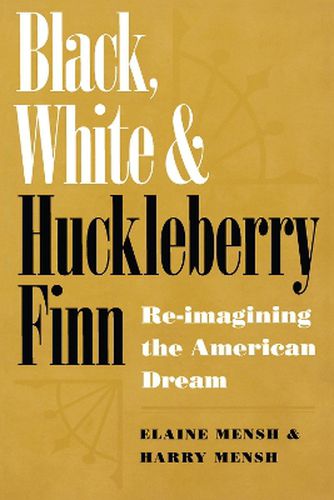Readings Newsletter
Become a Readings Member to make your shopping experience even easier.
Sign in or sign up for free!
You’re not far away from qualifying for FREE standard shipping within Australia
You’ve qualified for FREE standard shipping within Australia
The cart is loading…






Huckleberry Finn, one of the most widely taught novels in American literature, has long been the subject of debates over issues such as immorality to racism. This work enters the debate with an examination of racial messages imbedded in the tale of Huck and Jim. Using a gauge for analysis the historical record left by both slaves and slaveholders, this work compares Twain’s depiction with historical reality, attempting to determine where the book either undermines or upholds traditional racial attitudes. Surveying the opinions of fellow critics, it challenges the consensus that
Huckleberry Finn
fosters rapport between blacks and whites, arguing that the book does not subvert ingrained beliefs about race, and showing that the argument over black-white relations in the novel is also an argument over non-fictional racial relations and conflicting perceptions of racial harmony. Reading the novel in its historical context, the text concludes that Twain, in the character of Huck, never questions the institution of slavery, and even supports it in both thought and action. In response to student and parent challenges to the inclusion of the book in literature classes, they suggest that it should remain in school libraries but not be required reading.
$9.00 standard shipping within Australia
FREE standard shipping within Australia for orders over $100.00
Express & International shipping calculated at checkout
Huckleberry Finn, one of the most widely taught novels in American literature, has long been the subject of debates over issues such as immorality to racism. This work enters the debate with an examination of racial messages imbedded in the tale of Huck and Jim. Using a gauge for analysis the historical record left by both slaves and slaveholders, this work compares Twain’s depiction with historical reality, attempting to determine where the book either undermines or upholds traditional racial attitudes. Surveying the opinions of fellow critics, it challenges the consensus that
Huckleberry Finn
fosters rapport between blacks and whites, arguing that the book does not subvert ingrained beliefs about race, and showing that the argument over black-white relations in the novel is also an argument over non-fictional racial relations and conflicting perceptions of racial harmony. Reading the novel in its historical context, the text concludes that Twain, in the character of Huck, never questions the institution of slavery, and even supports it in both thought and action. In response to student and parent challenges to the inclusion of the book in literature classes, they suggest that it should remain in school libraries but not be required reading.